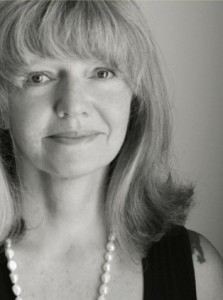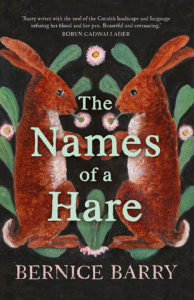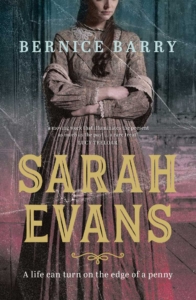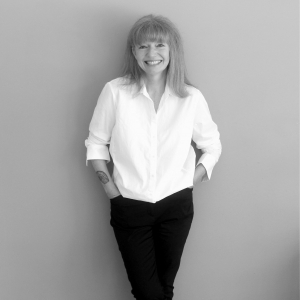Hello and thanks for stopping by. If you want to know a bit about me, you’re on the right page.
The latest news
The latest news is that my next novel will be published on 3 March by Fremantle Press. This book is really special to me so I’m very happy it’s in such safe hands. It’s called ‘The Names of a Hare’ and I’ve wanted to write the story for a long time – in fact, the prologue was written thirty-five years ago, pretty much word for word as it is now! It’s historical fiction once again, and it might not come as a surprise that the inspiration was a real woman who lived a long time ago.
Here’s the blurb, and if you want to have an advance peek at an excerpt now you can do so here.
“Cornwall, 1628. A young girl guards a dangerous secret: she can leave her body and fly. Steeped in herbal lore and forbidden spells, the girl becomes a woman, while across the land whispers of witchcraft turn deadly. When witchfinder Matthew Hopkins sets out to hunt her down, their meeting will change the course of history.
In a world that fears what it cannot explain, a story shared is the most potent magic of all.”
‘Barry writes with the soul of the Cornish landscape & language infusing her blood and her pen. Beautiful and entrancing.’
ROBYN CADWALLADER
‘Eloquent and wise, like its compelling narrator, this is one of the finest historical novels I have read.’
AMANDA CURTIN
Sarah Evans
It’s been a busy few years. My first novel was published in 2024 by Echo Publishing in Sydney, thanks to my wonderful agent, Jane Novak.
Sarah Evans is based on the true story of a remarkable woman and is set in eighteenth century London and Sydney. Sarah’s name had disappeared from history for two hundred years but now it’s there in gold foil on the cover of every book, in shops and libraries across Australia and New Zealand – and worldwide on the eBook and audiobook. (Hello UK!! Much of the story is set in #Clerkenwell and #StPancras #London)
You can read the blurb and find out a bit more HERE.
‘Bernice Barry’s superb scholarship, vivid prose and profound interest in the rediscovery and revealing of forgotten women are all evident in a moving work that illuminates the present as much as the past. Effortlessly, Barry breathes life into this world. A poor maid, Sarah Evans, rises from its pages, heartbreakingly real, resilient and, most of all, a survivor. This novel is a rare treat.’
LUCY TRELOAR
‘A dark, absorbing story of sorrow, hope and freedom.’
‘Richly imagined and meticulously researched… with a tonal similarity to Kate Grenville’s work.’
BOOKS & PUBLISHING
A Lady’s Pen
My second non-fiction book was published in 2023. ‘A Lady’s Pen: the botanical letters of Georgiana Molloy’, is available in bookshops and online booksellers, and from University of Western Australia Publishing UWAP website.
‘A Lady’s Pen‘ provides the first complete, unedited transcriptions of Molloy’s botanical letters to James Mangles and the first comprehensive list of species in her collections, including many not previously associated with her. We see her here as a scientist and a writer but, most of all, this is the story of a place and its biodiversity, the plants that are still evidence of uniqueness, the physical outcomes of being a living organism in the ecosystem of the species rich Southwest Australian Floristic Region. The main characters in A Lady’s Pen are the plants.
Molloy’s interaction with them was more invasive than if she had just admired them or picked them for flower arrangements in the home. Her work meant that she removed them from their environment, ending their lives within their native habitat but she gave enduring life to their stories, narratives of plant diversity that are still studied locally and worldwide today.
Please check the NEWS tab on here for information about talks and events.
‘Fact after fact follows in the rear of its predecessor, and discovery rolls on like a mighty stream,
proving with a force irresistible, that its resources are boundless.’
Robert Marnock, Curator of the Royal Botanical Society, 1841
And here’s my own story.
I grew up in the UK, on the Atlantic coast of Cornwall, so the ocean and the beach feel like home to me. After a lot of poetry and folk music and five hours a day practising guitar, I studied English in what was then ‘swinging London’, living in grimy bedsits infested with mice. My love affair with history and literature intensified and I finally left the city with a BA in English and a BA in French & Spanish. After a quick stint as a trainee buyer for a major chain store, a few months of private teaching in northern Spain and a job as a holiday tour rep near Barcelona, I remembered I was born to write and teach so I did a postgraduate year (Exeter University) and started my teaching career in Devon, living in a converted garage in a tiny riverside village. Two landlocked decades in the midlands followed, an Advanced Postgraduate Diploma in the teaching of reading and a Master’s Degree in Education (Leicester University) with a special study on the teaching of writing. My last ‘in-school’ post was as Head of English & Drama before working across the region as an advisor and inspector in Northamptonshire, supporting schools as they implemented the first ever National Curriculum.
The government’s new literacy strategy took me next to a much wider role as a Regional Director, training and supporting a team of forty consultants, providing professional development for 2,000 schools across eleven local authorities as well as a national responsibility for the use of technology in teaching English.
In 2001 I decided to work freelance and soon afterwards we moved halfway around the world to Australia’s far southwest. It felt like coming home. As I fall asleep and when I wake, I can hear the ocean.
Creating a native garden in the bush and running a business in Margaret River kept me busy, in between writing and travelling internationally as a trainer, consultant and editor. It was a challenging and exciting time working for clients in places as diverse as London, Hong Kong, the Kingdom of Saudi Arabia and Malaysia. I wrote articles for Screen Education magazine on oracy, storytelling and writing including these.
…and advised the National Curriculum Board (now ACARA) on a model and development strategies for our first Australian National Curriculum. I wrote widely for diverse clients including publishers and government agencies, and delivered several very large training programmes including the Support for Writing package that became part of a £25 million professional development initiative. Creating those documents on text types, particularly writing and researching traditional tales (myths, legends, fairy tales, fables…) for the fiction section, was the most rewarding project I’ve ever worked on. The most challenging was being lead consultant to the Teacher Training Agency on development of the first national tests in grammar, spelling and punctuation for student teachers in England and Wales.
At home in the far southwest of WA, I dug, planted, watered and watched, learning to love the indigenous plants as well as the animals and birds who live around me. It wasn’t long before I started investigating local history and old passions quickly resurfaced. When a major consultancy contract suddenly fell through at the last minute, I had a free diary for the first time and made a life-changing decision to move to full-time writing. In 2012, I won the inaugural southwest writer’s prize in the Margaret River Readers & Writers Festival and my short story was published by Margaret River Press.
In 2015, after more than ten years of research, my biography/memoir of local 19th century botanist and settler, Georgiana Molloy, (Georgiana Molloy – The mind that shines) was self-published in Western Australia and published in ANZ a year later by Pan Macmillan (Picador). In 2019 the eBook was published worldwide.
In the last few years, I’ve contributed to research and filming for documentaries
- Who Do You Think You Are? – Jane Turner SB
- Coast Australia Series 2 Ep 4 History Channel
- Out of the Blue TAV Productions
I enjoy every moment of being an author, especially the events, meeting readers and hearing their own stories.
So, my personal journey has been a long story so far. Here are some of the things I’ve learned along the way.
- The best writers are readers.
- There’s no right way to write.
- Hang on to grace and humility.
- Words are wonderful.
- It’s never going to be easy.
- Books bring people together.
- Accept practical help or emotional support when you need them.
- You’ll never stop learning.
- Look after your spine!




